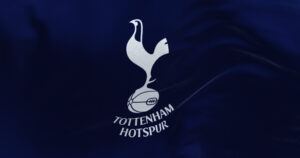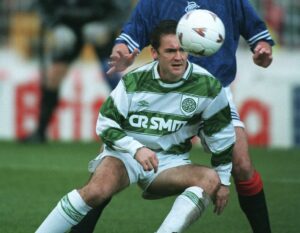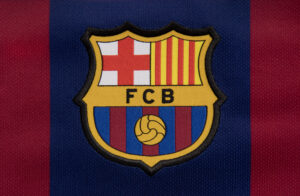Sporting Lisbon are closing in on their first title in 19 years. However, they have had some dark days during that time.
May 15, 2018, was a dark day for Sporting Lisbon. A large group of ‘supporters,’ who were protesting the team’s poor run of results, stormed into the club’s training facility and attacked the players, coaches and training staff. This attack and its fallout were an unmitigated disaster for Sporting, which led to the removal of then-club president Bruno de Carvalho, along with the decision of seven players to end their contracts with the team.
Eventually, 41 people were convicted for their involvement, but the damage was done. Sporting, one of Portugal’s Big Three football clubs -winners of 51 total trophies, including 18 league titles – were broken.
Sporting Closing in on First League Title in 19 Years
Sporting Top of the Table in Hunt for Title
Flash forward to Tuesday night, when Sporting defeated Gil Vicente 2-1, scoring the winner in the 91st minute courtesy of club captain Sebastián Coates. This victory was Sporting’s 15th in the league this season (out of 18 matches) and it maintained their unbeaten start. More importantly, it expanded their lead at the top of the league table to eight points, ahead of defending champions, Porto.
Driven by a balanced squad made up of youth and experience, an impressive manager and a desire to satisfy a massive fan base, Sporting are on track to win a league title for the first time since 2002, providing an opportunity to overcome the horrors of that night in May 2018 and reassert itself at the pinnacle of Portuguese football.
Benfica and Porto Recent Dominance
Since Sporting last finished top, the league has only been won by Benfica or Porto, the other two members of Portugal’s Big Three. Benfica have the most total league titles with 37, while Porto have won 29, including last seasons success. However, when Sporting won in 2002, they had the same number of titles as Porto, which shows how drastic the club’s drop off has been since Porto have won ten more titles in that period.
The closest Sporting have come to lifting the league trophy again came in 2006/07 when they finished just one point behind Porto. In 2015/16, they finished with 86 points (the most in club history) but still lost the title as Benfica claimed 88 points (a league record). Last season, they failed to finish in the top three for the first time since 2013, coming in fourth place with only 60 points. And yet, in 2020/21, they already have 48 points, with 16 matches still to play.
Guided by Youth
Sporting take pride in their youth academy and development, and with good reason. The club was responsible for launching the careers of Portuguese and world legends Luís Figo and Cristiano Ronaldo. In fact, ten of the 14 Portuguese national team players who played in and won the European Championship Final in 2016 against France were products of Sporting’s academy.
The successful youth system of the club has continued, with ten current players coming directly from the academy, including three who started in Sporting’s most impressive victory of the season so far: a 1-0 win over Benfica on February 1. One of these three is 18-year-old forward Tiago Tomás, who has bagged five goals in all competitions so far.
Overall, the average age of Sporting’s squad this season is 25.6 years old. The youthful members have propelled the team forward, including 22-year-old right-winger Pedro Goncalves, who leads the league in scoring with 14 goals. Central midfielder Matheus Nunes, also 22, scored the winner in the Benfica match. Another 22-year-old, Jovane Cabral, has scored three league goals, and six in all competitions.
Veteran Leadership
However, it is not just the young players who are guiding Sporting on their quest for title number 19. Veteran experience has also been pivotal toward the team’s success, starting with the defence, which has given up the fewest number of goals in the league (10). These defenders, all aged 30 or older, include the centre-back trio of Zouhair Feddal (31), Luís Neto (32), and Sebastián Coates (30). They protect the goal of Antonio Adán (33), who joined Sporting from Atlético Madrid over the summer.
Additionally, 26-year-old left winger Nuno Santos has scored five league goals, while 28-year-old Joao Mário commands the midfield, making an appearance in 14 of the 18 matches this season. Mário started his career as a member of the Sporting academy and first team, before moving abroad to Inter Milan in 2016. He also played in all seven of Portugal’s Euro 2016 matches, including the final. In October 2020, he returned on loan to Sporting, where his experience and familiarity with the club have been crucial.
The Next Big Portuguese Manager
Leading the way for Sporting is manager Rúben Amorim who, at only 36, finished his playing career in 2016. Ironically, he played primarily for Sporting’s arch-rival Benfica and won ten titles there, including three leagues. However, Amorim’s start in management did not go well, as he resigned from then-third division club Casa Pia in January 2019, before leading top-flight side Braga’s reserves in September. By the end of the year, he was put in charge of the first team. In his 72 days as Braga manager, Amorim oversaw victories over Sporting, Benfica and Porto, while winning the Taca da Liga (League Cup) in January 2020.
These spectacular results put Amorim firmly on the radar as the next big manager in Portugal, and Sporting, who were struggling last season, decided to hire him in March, paying a €10 million release clause for him, despite his lack of managerial experience. Sporting’s faith in Amorim is reflected by the fact that they have set his buyout clause at €20 million.
Sporting’s rise to the top of the league has made the appointment of Amorim appear to be a stroke of genius. His 3-4-3 formation, which changes to 3-4-2-1 and even 3-3-3-1, requires tactical flexibility and technical ability, which the Sporting squad has been able to achieve. By only playing three defenders, the key for Sporting has been to control possession and to exploit the advantage of having potentially up to seven attackers in the opponent’s own third. Their wide forward play has been impressive in this formation, particularly leading scorer Goncalves.
Sporting’s 2-0 victory over Amorim’s former club Braga on January 2 exemplified the success of this formation. The reliable back-three defence of Feddal, Neto and Coates were controlling and imperious, and played out from the back toward the midfield four, which, combined with the front three, overran Braga in the second half, with goals coming from Goncalves and Nunes, both playing on the wide right.
Overcoming the Loss of a Star
In an era of Portuguese football where Benfica and Porto have dominated, the revival of Sporting has been spectacular. Even more so considering the loss of star Bruno Fernandes, who was sold to Manchester United for £49.50 million in January 2020. Fernandes’ productivity at Sporting was off the charts as he finished his last full season (2018/19) with 20 goals and 13 assists in the league. United knew what they were getting from the attacking midfielder, who has lit up the Premier League since his arrival and has almost single-handedly been responsible for the club’s return to prominence.
A Chance for Title Glory for Sporting Lisbon
If Sporting are to win the league this year for the first time since 2002, it will be thoroughly deserved, with a balanced attacking team mixed with academy products and veteran leadership, along with a young talented manager.
The road will not be easy as there are away matches at Porto, Braga and Benfica still to come. But, with an eight-point lead past the halfway point of the season, there is a chance. A chance to end the supremacy of Benfica and Porto. A chance to finally lift the league trophy for the first time in 19 years. A chance to provide hope and relief to a suffering fanbase. A chance to expel the demons of May 15, 2018. A chance for glory.
Main Photo






